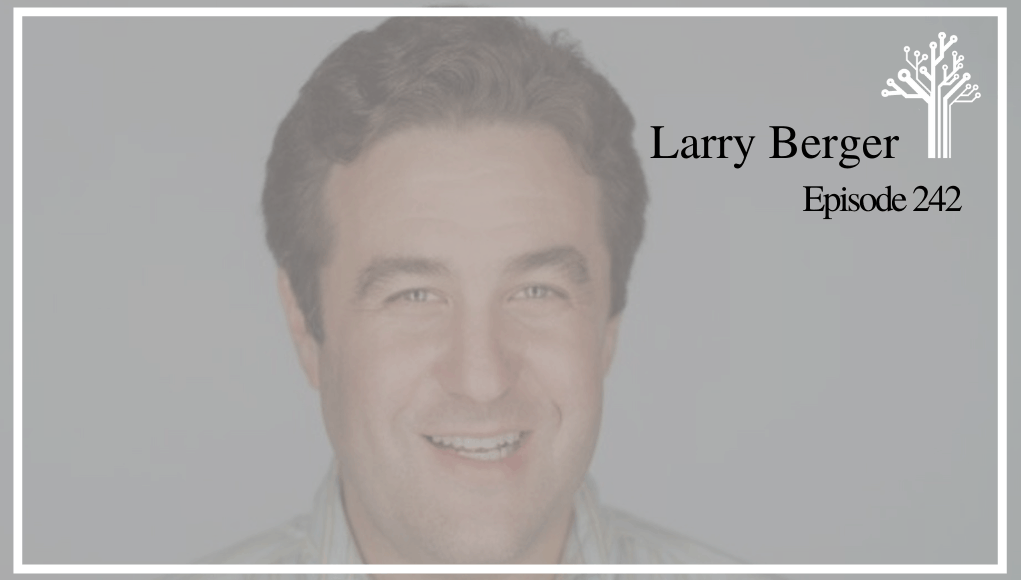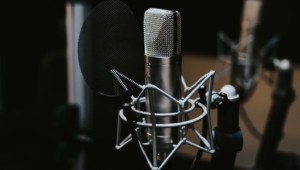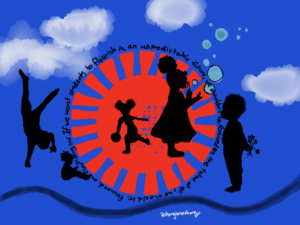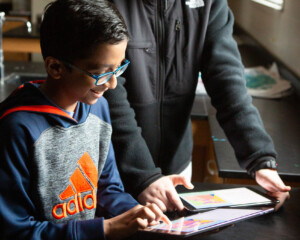Podcast: Larry Berger on EdTech Past and Future

After studying English Literature at Yale, Larry Berger (@LarryAmplify) studied at Oxford on a Rhodes Scholarship. He learned to appreciate poetry and to this day will sneak it into speeches and curriculum products where he can.
As a White House Fellow, Berger worked for Dan Goldin at NASA planning for what they called “Children’s lanes on the information superhighway.”
In 2000, when there were a few desktops in the back of classrooms for playing Oregon Trail and logging Accelerated Reader points, Berger and Greg Gunn co-founded ed-tech pioneer Wireless Generation.
They set out to automate teacher workflow by building applications for an early mobile device –the Palm Pilot. Their timing turned out to be historic–the Reading First program in NCLB doled out $1 billion a year for early reading. With a little angel funding, Wireless Generation became a leader reading assessment.
As the US pulled out of the Great Recession, edtech investment began to pick up. The big publishers were trying to make the pivot to digital. Wireless Generation was acquired by NewsCorp and became Amplify (@Amplify) and gained the funding to develop new products and expand.
When News Corp decided against going long on edtech, Berger had the chance to lead a spin-out five years ago with help from Emerson Collective.
In addition to assessment products, Amplify has become a leader in digital K-8 English, math, and science curriculum.
While many schools are in a digital free for all, with a mishmash of apps and sources, Berger sees “The content is becoming organizing principle.”
Berger thinks print and digital will co-exist for a long time. “Print doesn’t distract,” said Berger. “There’s a wave of keeping print and supporting sustained attention.”
He worries that some schools have “over-rotated” toward engagement at the expense of coherent learning sequences. He sees an opportunity to “unlock the power of the ideas themselves by letting experts create coherent experiences.”
At Amplify, they try to understand what teachers need, how to save them time, how to extend reach and deepen understanding.
Berger is pleased to see teachers more involved in district adoptions. Teachers often have the opportunity to pilot finalist content creating a real meritocracy. “It unites user and decider, it purifies the art of building product,” said Berger.
Five Ed Tech Predictions. Berger wrapped up with thoughts on the road forward:
- With all the talk about 5G mobile internet speed, next-gen WiFi will be an even bigger boost to education.
- AI will make ed-tech products smarter but it’s most important benefit will be extending the reach of teachers.
- Augmented and virtual reality is not likely to live up to the hype in K-12
- Comprehensive learner profiles (with good privacy) will become common after there is clear demonstrated effectiveness.
- Formative assessment will replace most of summative assessment when it’s curriculum embedded.
Key Takeaways:
[:51] Larry speaks about why he studied English at Yale University.
[1:21] Larry shares how he is still involved in poetry to this day.
[1:55] Larry speaks a bit about his favorite poems and poets.
[2:29] Fastforward to the origin story of Wireless Generation, Larry speaks about what his inspiration was for his career in ed-tech.
[4:05] Tom and Larry paint a picture of what ed-tech looked like around the time he started his company, Wireless Generation.
[5:37] Larry speaks about the initial ideas that inspired the creation of Wireless Generation.
[9:40] How Larry and his co-founder financed the growth of the company and got it off the ground.
[12:20] Would it be correct to say that Wireless Generation quickly became a leader in formative assessment in the early 2000s?
[15:18] Fastforward to 2010, Larry speaks about an offer that they couldn’t refuse as a company.
[17:31] How the acquisition afforded Wireless Generation to be able to conduct research and development at an entirely new level.
[19:11] About Wireless Generation’s pivot to digital.
[20:12] Larry speaks about the transition from Wireless Generation to Amplify.
[22:53] Larry gives his thoughts on the ed-tech landscape today and the shift from print to digital.
[28:33] Larry gives his take on those who feel that learner experience is the core design principle.
[30:05] Larry speaks about what it is that he does these days at Amplify!
[32:35] What’s on the roadmap for Amplify in the next year or two?
[35:45] Tom tests Larry with an impossibly difficult lightning round of questions!
[43:44] Tom thanks Larry for all the work he’s doing and for joining the Getting Smart podcast!
Mentioned in This Episode:
Larry Berger
Wireless Generation
Amplify
Poets.org
Apple Classrooms of Tomorrow
Accelerated Reader
Qualcomm
Irwin Jacobs
News Corp
Emerson Collective
Getting Smart Ep. 239: “Jo Boaler on the Limitless Mind and Learning Math That Matters”
Google Classroom
For more, see:
- Exploring the Future of Education through Neuroscience, EdTech, and Literacy
- ISTE Releases a Practical Guide for Educators on Buying EdTech
- What Do Broad EdTech Trends Mean for Your School District
Stay in-the-know with innovations in learning by signing up for the weekly Smart Update.






0 Comments
Leave a Comment
Your email address will not be published. All fields are required.